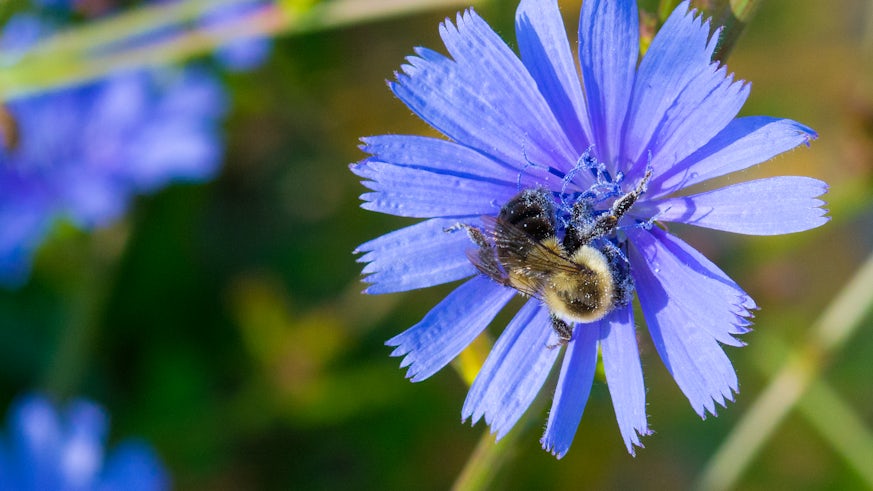Schoolkids search for flowers bees love most
22 April 2020

School pupils are being asked to help scientists identify a ‘superseed’ mix of wildflowers that support honeybees and other crucial pollinators.
Around 200 free packets of wildflower seeds are being made available for primary school children to plant in Cathays, Cardiff, as part of a Rewilding Cardiff project to develop the next generation of Welsh scientists and boost the city’s greenery.
Cardiff University’s @Pharmabees project has teamed up with a local Cathays supermarket to give away the mixed seeds to parents during lockdown shopping.
Led by Professor Les Baillie, School of Pharmacy and Pharmaceutical Sciences, @Pharmabees is launching the project on Earth Day (22 April) - alongside online information to help children learn about wildflowers, biodiversity, and the importance of pollinators such as honeybees and how they are helping scientists find new antibiotics.
“We’re relying on pupils to do the real fieldwork for @Pharmabees during lockdown,” said Professor Baillie. “These junior scientists will be our eyes and ears, recording how the flowers grow and surveying the insects they attract.
“We’re asking parents to pick up a packet of free seeds from the Co-op in Crwys Road the next time they shop there, and for the children to plant the seeds either in soil in their back gardens or in a flowerpot.
“As the flowers grow, pupils will be asked to keep a record of which plants grow best and which attract the most insect visits through our BioBlitz survey. A guide on how to identify individual plants and insects, as well as the survey can be downloaded from our website. We would love anyone participating in Cathays to post photos and video on out twitter account @pharmabees.
The information which our junior scientists collected will be used to help the university to develop a wildflower ‘superseed’ mix – containing the best flowers for honeybees - which we hope will be used to support pollinators across Wales.”
Cathays councillor Sarah Merry said: “Cathays is probably the most densely populated part of Wales, so we are keen to support @Pharmabees. It will be really exciting for children stuck at home if they can combine growing plants with being part of a science project and help our bee population.”
The award-winning @Pharmabees project combines leading edge research with community engagement by exploring how certain native Welsh plants could lead to the development of drugs to treat serious medical conditions now resistant to traditional antibiotics - otherwise known as 'superbugs'.
Cardiff University Vice-Chancellor and President, Professor Colin Riordan said: “We’re delighted to support the ‘superseed’ project through our Civic Mission board on Earth Day, working with our local communities. The activities will play a useful role in helping pupils develop STEM skills, from accurately recording bee sightings to distinguishing plants and insects.”
Further information about teaching resources for @Pharmabees can be found at: https://www.cardiff.ac.uk/pharmabees
Tools developed for the Cathays ‘superseed’ project are available for parents and children at https://sciencesessions.wixsite.com/sciencesessions
Share this story
The School one of the top UK schools of Pharmacy with an international reputation for the quality of our research.



